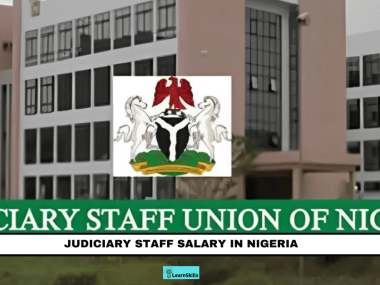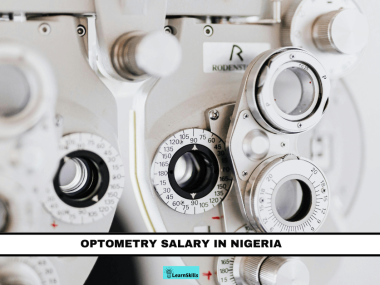As a geologist in Nigeria, you can expect a range of salaries based on your experience and location. A mid-career geologist with 5 to 9 years of experience earns an average total compensation of around ₦13,000,000 annually.
In cities like Lagos, the estimated monthly pay is NGN225,443, with an average salary of NGN175,000. This variation highlights how location and the type of geological work you choose can affect your earnings.
Many geologists seek opportunities in petroleum geology, often leading to some of the highest-paying positions in the country.
Understanding the potential salary ranges and factors influencing pay can help you navigate your career path effectively.
Geology Career Landscape in Nigeria
The geology career landscape in Nigeria presents various opportunities shaped by the country’s rich natural resources. Demand for skilled geologists continues to grow across several sectors, each offering unique roles and job prospects.
Demand for Geologists
Geologists are increasingly in demand as Nigeria develops its natural resources. Your expertise is vital in oil and gas exploration, mineral extraction, and environmental management. The rise in infrastructure projects also boosts the need for geological assessments.
Organizations like Westfield Consulting Limited and Domeo Resources International (DRI) actively recruit geologists for different positions. This recruitment highlights your role in ensuring safe and effective resource management.
Many companies look for candidates with hands-on experience or relevant education in geology, making internships and training programs valuable.
Sectors Employing Geologists
Several sectors employ geologists in Nigeria, reflecting the diverse applications of geological science. The oil and gas industry remains the largest employer, where your skills aid in exploration and production processes.
Mining companies seek geologists to locate and extract minerals like gold, coal, and limestone. Environmental agencies employ geologists to assess land use, pollution, and natural hazards.
Job opportunities exist in government agencies and academic institutions, too. These roles often include research, policy development, and teaching. By targeting these sectors, you can maximize your chances of securing a rewarding position in the field.
Determinants of Geologist Salaries
Several factors can influence the salary of a geologist in Nigeria. Understanding these determinants will help you navigate your career choices effectively.
Education and Qualifications
Your educational background plays a crucial role in your salary as a geologist. The minimum requirement is a Bachelor of Science (BS) degree in geology or related fields. Higher degrees, like a Master’s or PhD, can lead to better-paying positions.
Certifications in specialized areas, such as petroleum geology, can enhance your prospects. These qualifications signal proficiency and may increase your earnings potential.
For example, companies like Perfetti Van Melle Nigeria Limited value advanced degrees, as they often require complex geological analysis.
Experience and Expertise
Experience is another key factor in determining your salary. Entry-level geologists may earn lower, starting around ₦200,000 monthly. As you accumulate years of experience, your salary can rise significantly.
Senior roles, such as project managers or lead geologists, can earn significantly more, sometimes exceeding ₦500,000 per month. Applied skills, such as fieldwork expertise or data analysis, can boost your salary.
Companies like Beta Glass Plc often pay more for geologists with substantial experience and proven skills.
Industry and Sector Variations
The industry in which you work significantly affects your salary. Geologists in the oil and gas sector can earn higher compared to those in mining or environmental services.
Companies like Bond Chemical Industries Limited often offer salaries above the average market rate due to profitability. In urban areas like Lagos, salaries tend to be higher due to increased demand and the cost of living. For example, a geologist might earn around ₦225,443 monthly in this region.
Understanding these variations can help you choose the right career path and negotiate your salary effectively.
Average Salary Benchmarks
In Nigeria, geologist salaries vary based on experience, location, and the type of employer. Entry-level, mid-level, and senior geologists each have distinct earning potentials.
Entry-Level Geologists
As an entry-level geologist in Nigeria, you can earn around ₦120,000 to ₦170,000 monthly. This figure may fluctuate depending on your location and the company.
Employers like Estrada International Staffing Solutions and Malaria Consortium offer competitive starting salaries. Your role may involve assisting in fieldwork, data collection, and basic analysis.
Mid-Level Geologists
Once you reach mid-level status, salaries rise significantly. You might earn between ₦175,000 and ₦250,000 per month. Firms such as Bourbon Interoil Nigeria Limited typically pay higher for experienced professionals.
Here, you’ll likely handle more complex projects, manage teams, and prepare reports. Your responsibilities include overseeing field activities and conducting thorough analyses to support decision-making.
Continual professional development can lead to even higher earnings as you build your reputation in the field.
Senior Geologists
As a senior geologist, your earnings increase, often ranging from ₦250,000 to ₦400,000 or more monthly. Companies like Stanbic IBTC Bank are known for offering attractive salaries for experienced staff.
In this role, you’ll take on strategic responsibilities, mentoring junior staff and collaborating with cross-functional teams. Your expertise will directly influence the success of various projects.
Networking and maintaining your industry knowledge will be key to leveraging your experience into higher-paying opportunities.
Comparative Analysis of Geologist Salaries
Geologist salaries in Nigeria vary based on region and company. Understanding these differences can help you make informed career decisions.
Salaries in Different Regions
In Nigeria, geologists salaries differ significantly from one region to another. For example, in Lagos, the average monthly salary is approximately ₦175,000, with some geologists earning up to ₦225,443 when bonuses and other benefits are included.
Due to the concentration of government agencies and multinational companies in Abuja, salaries might be slightly higher.
Meanwhile, in smaller cities or rural areas, salaries can be lower, ranging from ₦250,000 to ₦500,000 annually, depending on factors like the company and job role.
International Salary Comparisons
There are notable differences when comparing salaries in Nigeria to other countries. A geologist in the United States might earn around $70,000 per year, which is considerably higher than the Nigerian average.
Salaries can range from £30,000 to £50,000 annually in the United Kingdom. These international figures highlight the varying economic conditions and demand for geologists in different markets.
Companies like the International Institute of Tropical Agriculture (IITA) and Scruples Resource Limited (SRL) may offer competitive pay but still lag behind global standards.
Enhancing Earning Potential
Improving your salary as a geologist in Nigeria involves gaining further education and joining professional networks. Here’s how to effectively increase your earning capacity.
Further Education and Certifications
Pursuing advanced degrees or specific certifications can significantly boost your salary. A Master’s degree in Geology or related fields may open doors to higher-paying positions.
Certifications offered by organizations like the Nigerian Mining and Geosciences Society (NMGS) can also enhance your credentials.
Consider specialized training in areas like environmental geology or petroleum geology. Institutions like TeamAce Limited and HR and Its People often provide relevant courses that add value to your resume.
These educational pursuits show your commitment to the field and can make you more attractive to employers.
Networking and Professional Associations
Networking plays a vital role in expanding your job opportunities. Joining professional associations can help you connect with industry leaders and peers. These connections can lead to job referrals and insights into job openings.
Participating in industry events and workshops enhances your visibility. Companies like Tak Logistics Limited and FMR Agency often sponsor such events, providing networking chances.
Engaging with professionals and sharing experiences can lead to mentorship opportunities, which can guide your career path.










